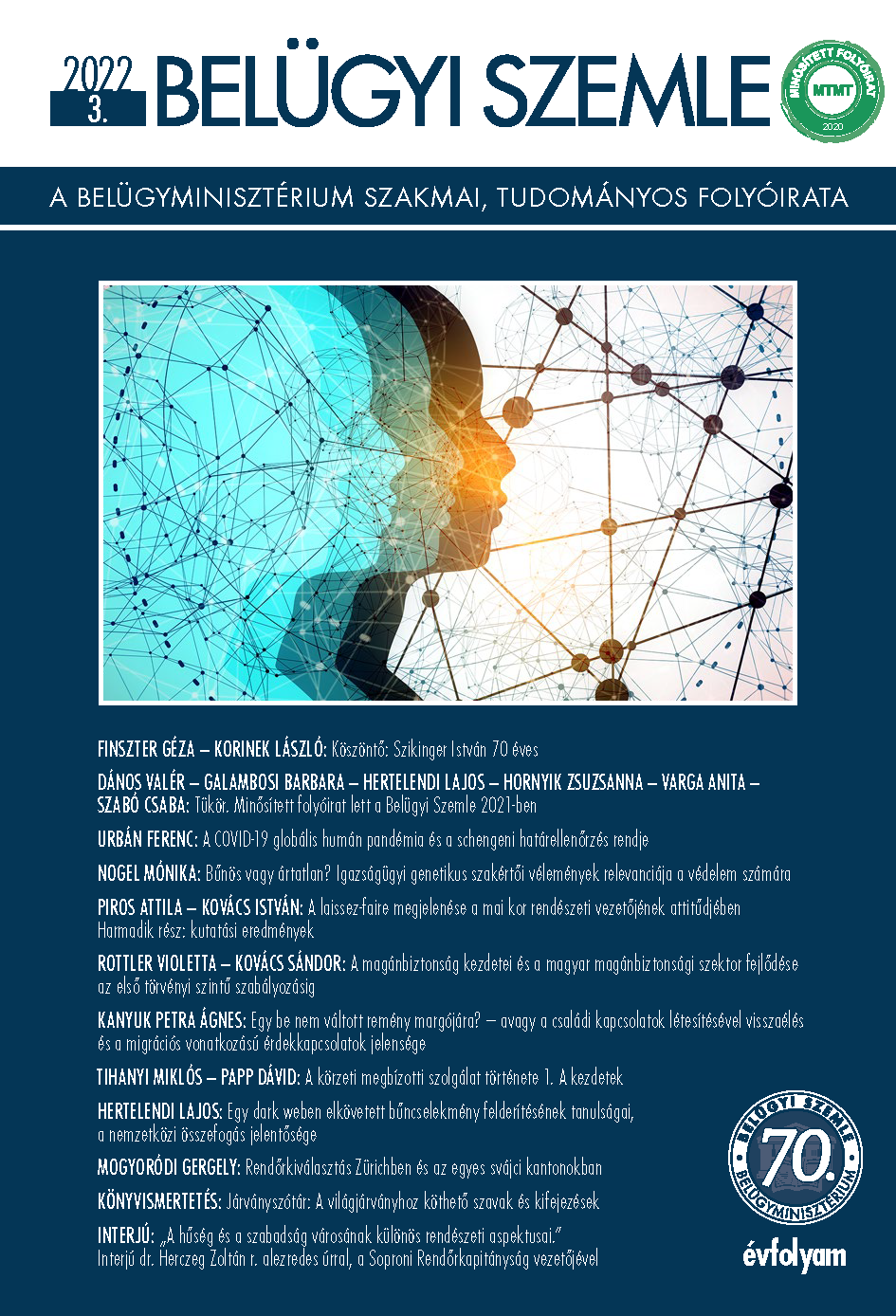Abstract
Aim: The low statistical indicators linked to the abuse of establishing family relationships, in the light of the fact that the request for assistance from national authorities to Eurojust concerning migration-related relationships of convenience has doubled in the last ten years, suggest that instead of analysing the criminal offence from a dogmatic point of view, let us take a closer look at the specialties of the phenomenon of migration-related relationships of convenience, namely its presence and issues in Hungarian immigration practice and the ‘new colors’ mixed into the phenomenon due to its close connection with organised crime.
Methodology: In order to achieve the results, in addition to processing the diverse literature on the examined topic, I also relied on the evaluation of the relevant case law and statistical data.
Findings: As a result of my research, my hypothesis has been confirmed, as the exploration of the phenomenon of migration-related relationships of convenience goes far beyond the criminal offence that reflects only a slice of it.
Value: The phenomenon in question involves particular risks, as it is seemingly linked to relatively minor offences, however, in many cases, they are part of a broader criminal fraud scheme, with the aim of the direct abuse of the fundamental right to freedom of movement within the EU, based on the exploitation of vulnerable persons, which also offers further research opportunities. The need to explore the deeper layers was also reinforced by the fact that the Hungarian involvement seems to be particularly strong: according to UK statistics, in 2012, following their nationals, Hungarian ‘brides’ were most affected by cases of suspicion of migration-related marriages of convenience.
